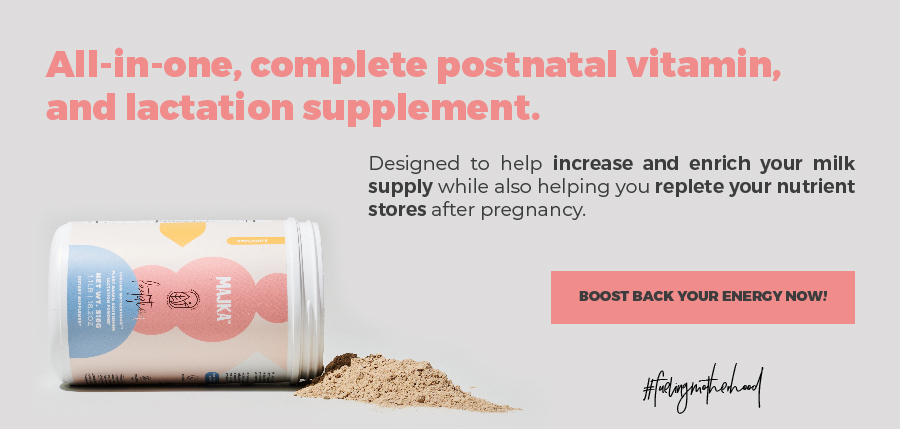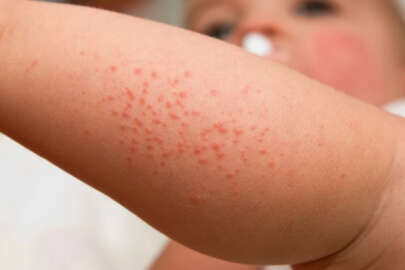
Nowadays, there is research that connects our gut health to that of our overall health.
In this article, we will review the discoveries on a baby’s gut health to help you decide what works best for you and your baby!
Baby’s Gut Health
Gut Microbiota is established during the early stages of life. This has an impact not only on the current state of your baby’s health, but his/her future health as well.
When your baby is born, he/she is exposed to a new environment with microbes that start to colonize his/her gut. Shortly after your baby is born, his/her primary source of microbes come from your gut microflora if you breastfeed.
A healthy gut microflora is vital for the health of your baby. The bacteria..” in his/her gut will help to get the nutrients he/she needs through digestion. It also plays an important role in the maturation and functioning of your baby’s immune system.
Studies have also suggested that the microbiome may have an impact in the development of the newborn brain, having effects on cognition, anxiety, mood, and sociability..
Breastfeeding and Gut Health
Breastfeeding is a great way to develop an adequate gut health for your baby, as it is a supply of natural Human Milk Oligosaccharide (HMO). HMO’s are a great contribution to your baby’s gut. They are proven to help protect him/her against infection and immune related diseases. Breast milk is also a big source of live bacteria, which helps your baby to develop a healthy gut.
Formula and Gut Health
Formula is known as the best option for your baby when you are not breastfeeding. If you want to complement it, research shows ways to make it more beneficial for your baby’s gut health.”
New compositions of infant formulas are trying to reproduce the beneficial effects of breast milk in your baby’s gut. This is achieved by adding bioactive ingredients such as HMOs, probiotics, and prebiotics.breastfeeding is not the right choice for you, your baby will still develop a healthy gut.
What foods are good for my baby’s gut health?
Introducing solid foods to your baby’s diet causes a shift in your baby’s gut microbial composition, making his/her gut more adult-like.
Having dietary diversity while introducing solids is important for your baby’s diet. This can increase microbial richness in his/her intestines.
High daily dietary diversity has been associated with stability of the gut microbiota. Studies have shown that a healthy, fiber-rich, and diverse diet throughout the life-course sets the stage for great gut health.
Foods that help your baby’s gut health are fiber-rich foods.This includes fruits and vegetables such as raspberries, blueberries, bananas, apples, kale, spinach, green beans, pumpkins, and peas. Whole grains like oats, brown rice, and quinoa are rich in fiber as well. It’s also great to add legumes, nuts, and seeds if you want to have a fiber-rich diet. Keep in mind that every baby is different and always talk to your healthcare provider regarding your baby’s diet.
*For information regarding baby probiotics we have a complete article on this website.
What doesn’t help my baby’s gut?
As we mentioned, live bacteria is great for your baby’s gut health. Even so, there is some bacteria that isn’t great for your baby. Your doctor may recommend antibiotics to get rid of this bad bacteria, but this will also strip some of the good bacteria. When this happens, it is important to get your baby back on his/her feet with probiotics.You can find an article about it here.
Avoid refined sugar, processed foods, and a non diverse diet while feeding your baby.
If your baby is vomiting, has diarrhea, fever, etc give your doctor a call to form a plan of care.
How do I improve my baby’s gut health?
To maintain and improve your baby’s gut health, ask your doctor what is best for your baby regarding your case.
If your baby is formula-fed but you feel it isn’t the best fit, contact your healthcare provider and research options to make an informed decision.
Keep a healthy, fiber-rich, and diverse diet for you and for your baby. Setting the tone for diversity in foods makes it easier in the long run if you need to change what your baby is eating. Also, keeping yourself healthy will give you the energy that you need to take care of your baby.
At Breastfeeding 101, we hope you have the information necessary to understand what gut health is and means in your baby’s life..
If you want to learn more about baby’s gut health, take a look at our other articles similar to this matter. Here are some of the sources that made this article possible:
Development and Functions of the Infant Gut Microflora: Western vs. Indian Infants I International Journal of PediatricsDevelopment of gut microbiota during the first 2 years of life I scientific reports
Early-life formula feeding is associated with infant gut microbiota alterations and an increased antibiotic resistance load I Oxford Academic
Effects of gut microbiome and environment on the development of eczema in Chinese infants I National Library of Medicine
Gut bacteria linked with infant diet, eczema and caesarean section birth I King’s college London
Gut microbiota composition during infancy and subsequent behavioural outcomes I ScienceDirect
Gut Microbiota Development: Influence of Diet from Infancy to Toddlerhood I Karge
Infants’ First Solid Foods: Impact on Gut Microbiota Development in Two Intercontinental Cohorts I National Library of Medicine
Mother-to-Infant Microbial Transmission from Different Body Sites Shapes the Developing Infant Gut Microbiome I ScienceDirect
Manipulating the neonatal gut microbiome: current understanding and future perspectives I BMJ Journal
Maternal exposures and the infant gut microbiome: a systematic review with meta-analysis I Taylor and Francis online
Recent advances of intestinal microbiota transmission from mother to infant I ScienceDirect
Term Infant Formulas Influencing Gut Microbiota: An Overview I National Library of Medicine
The establishment of the gut microbiota in 1-year-aged infants: from birth to family food I Springer
The infant gut microbiome as a microbial organ influencing host well-being I Italian Journal of Pediatrics
The infant microbiome development: mom matters I National Library of Medicine
The Infant Microbiome: Implications for Infant Health and Neurocognitive Development I National Library of Medicine
The Role of Microbiota in Infant Health: From Early Life to Adulthood I Frontiers
Avery Reckers






